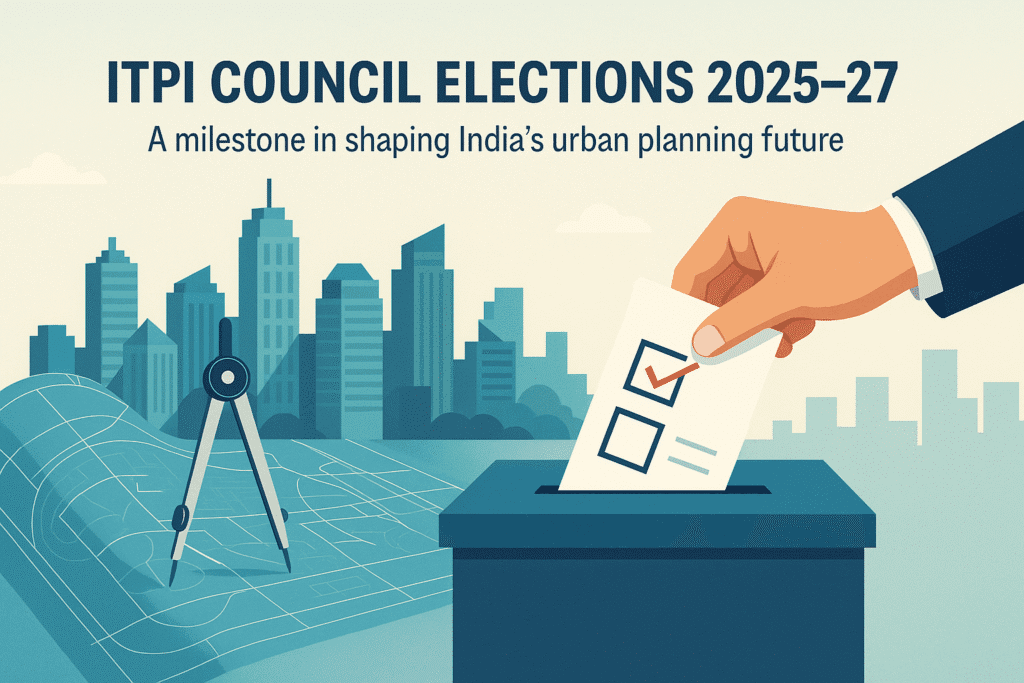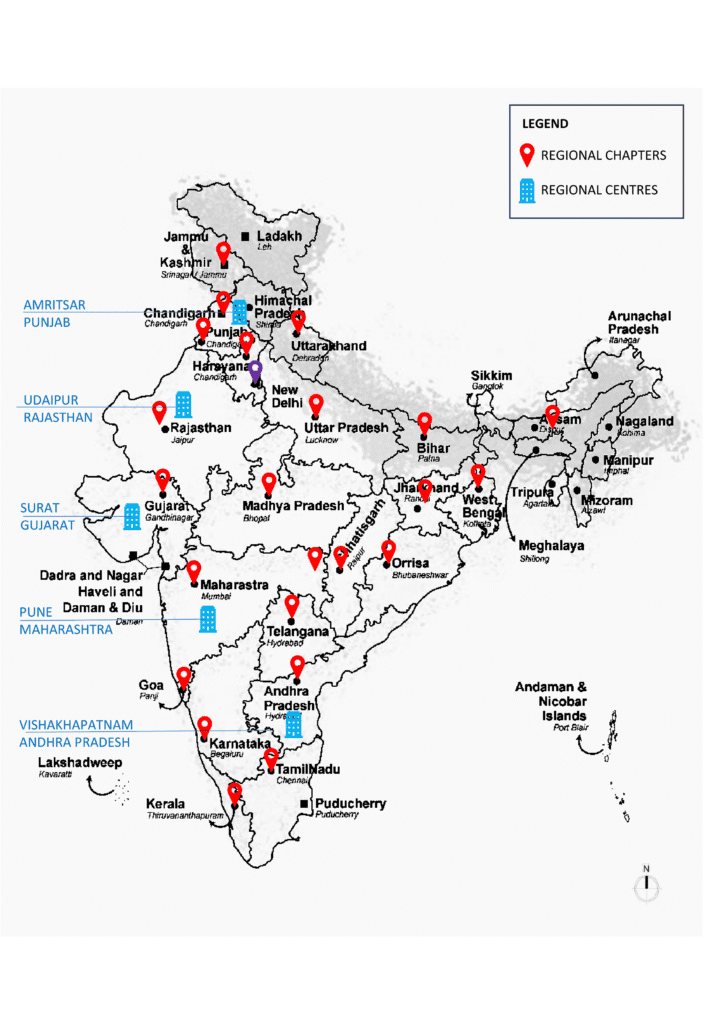When India was rebuilding its cities in the aftermath of Independence, a small group of visionary planners realized the need for a professional body that could guide urban growth. This idea led to the formation of the Indian Board of Town Planners in 1947, which in 1951 transformed into the Institute of Town Planners, India (ITPI) with a group of 13 dedicated town planners, with Late Shri M. Fayazuddin serving as its first President. Since then, ITPI has stood as the apex national institute for town and country planning, steering the discipline through education, research, and professional standards. The Institute of Town Planners, India (ITPI) today functions through 24 Regional Chapters and 5 Regional Centres, mostly located in state capitals. Over the decades, these chapters were established to decentralize activities, promote planning education, and connect local practitioners. Regional Centres were later added to improve outreach, while many chapters now have their own infrastructure and organize conferences, trainings, and policy dialogues. Recent expansions, such as the Visakhapatnam Centre and a reserved seat for the North East Chapter, reflect ITPI’s growing inclusivity and regional representation. These regional chapters are supported by various functional committees such as the Town Planning Examination Board, Equivalency Committee, Evaluation Committee, Regional Chapter Building Committees, Editorial Board, Scrutiny Committee, HQ Building Committee, Climate Action Forum, Practicing Planners Committee, Women Planners Forum, Institutional Cooperation Forum, and CSR Committee. Over time, ITPI has expanded its infrastructure, outreach, and inclusivity.

Over the decades, ITPI’s elected Council has been the heartbeat of the institution for its effective functioning. The system of electing members to the Council began soon after its establishment, evolving over the years to ensure greater inclusivity, transparency, and regional representation. From early in-person voting methods to today’s postal ballot system, the election mechanism has mirrored the institute’s own modernization journey.

The 2025–27 Elections: A Democratic Milestone
Carrying forward this legacy, the Council of ITPI in its meeting on 28 July 2025 decided to conduct the upcoming Council Elections (2025–27) through postal ballot, as per Byelaw No. 45(i). A formal election notice was circulated on 6 August 2025 to all Corporate Members, marking the beginning of this democratic exercise.
Under the rules, the President, Vice-President, and Secretary General of the outgoing Council automatically serve as ex officio members of the new Council (Byelaw No. 35). The remaining 28 seats are open for election, divided between two constituencies:
General Constituency (20 seats) – including 2 reserved for women and 1 for a North East Regional Chapter member.
Special Constituency (8 seats) – exclusively for Regional Chapter Chairpersons, with 1 reserved for a woman Chairperson.
Nominees vs Seats
The nomination and scrutiny process concluded on 22 August 2025, producing a lively contest with 53 nominees:
- General (Unreserved): 35 nominees
- General (Reserved for Women): 5 nominees
- General (Reserved for North East): 1 nominee
- Special Constituency (Regional Chairpersons): 10 nominees
- Special Constituency (Women Chairpersons): 2 nominees

The Road Ahead
Ballot papers, along with candidate details and nomination supporters, have already been dispatched to eligible members. Voters must return their completed ballots in the prescribed sealed envelope to ITPI Headquarters, New Delhi, by 5:00 PM, Tuesday, 23 September 2025.

For any member who has not yet received their ballot, the Institute has urged them to contact the Secretary General (sg@itpi.org.in) using their registered email and membership number.
Why This Matters
More than just an internal election, this process will shape the direction of urban planning in India for the next two years. ITPI’s Council plays a pivotal role in guiding policy, setting professional benchmarks, and supporting regional chapters nationwide. With special emphasis on gender inclusivity and regional voices, these elections embody ITPI’s mission of balanced, democratic, and forward-looking governance.
As India continues to urbanize at an unprecedented pace, the planners we elect today will play a crucial role in shaping the cities of tomorrow.
For more details, visit: www.itpi.org.in
